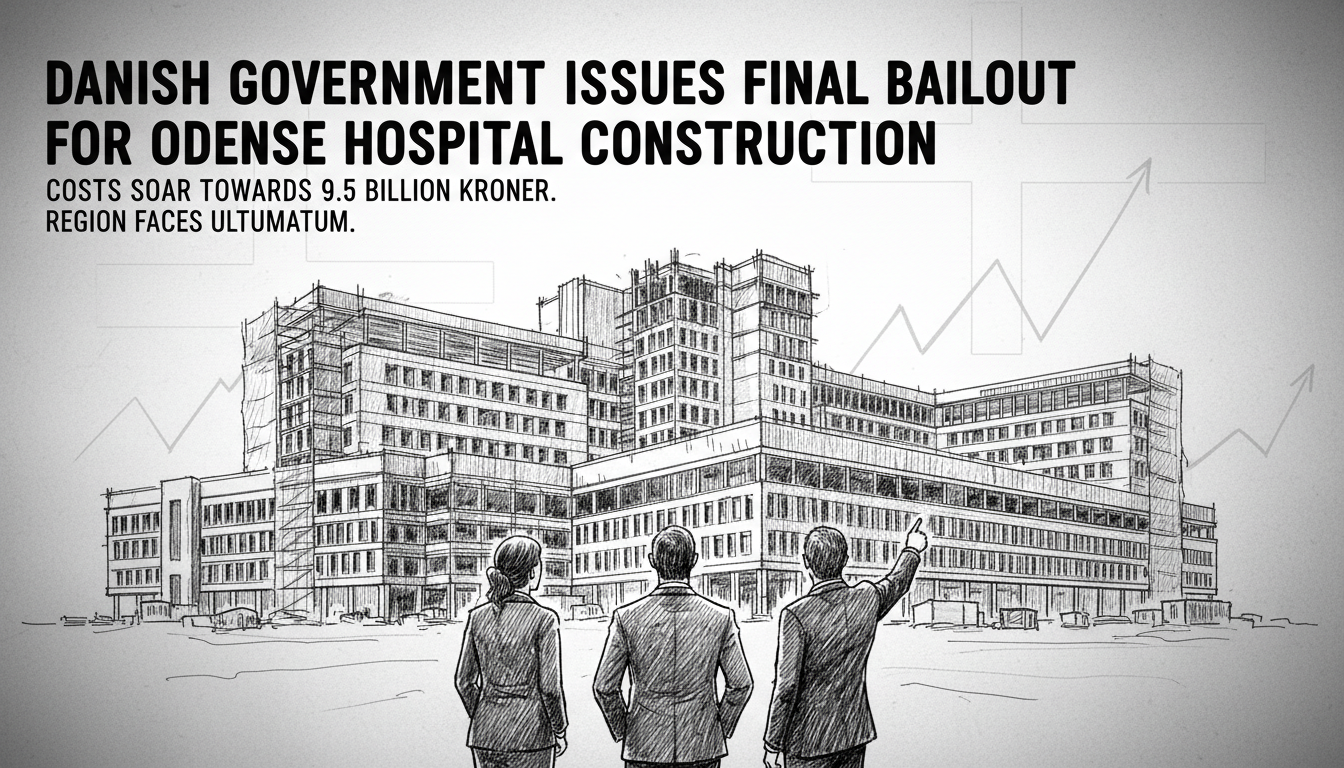The Danish government has delivered an ultimatum to Southern Denmark Region regarding the troubled New OUH hospital construction project. Interior and Health Minister Sophie Løhde declared this would be the final time the state provides financial assistance for the Odense university hospital expansion.
The project now requires an additional 985 million kroner beyond its original budget. Total costs have ballooned to approximately 9.5 billion kroner. Recent budget revisions indicate even these funds may prove insufficient.
Minister Løhde summoned Regional Council Chairman Bo Libergren for urgent talks before municipal elections. She emphasized the government will only approve a new governing budget if the region presents a fully consolidated financial plan. The minister stated clearly this represents the absolute final intervention from state coffers.
Regional authorities acknowledge the seriousness of the situation. Libergren described the meeting as productive while recognizing ministerial frustration. He noted the Odense hospital is far from the only major healthcare construction facing budget and timeline challenges.
The project originally targeted 2022 completion. Current schedules now anticipate first patients arriving in 2027. Construction continues progressing well according to regional officials.
This situation reflects broader challenges in Danish public infrastructure projects. Major construction initiatives frequently encounter budget overruns and delays. The pattern raises questions about planning accuracy and cost control mechanisms.
The hospital controversy emerges during a period of heightened scrutiny of public spending. Danish taxpayers increasingly demand accountability for major investments. The government faces pressure to demonstrate fiscal responsibility while maintaining essential services.
Regional authorities now must strengthen financial reserves to ensure project completion. They recognize this represents their final opportunity for state support. The coming months will test whether revised budgeting can deliver the promised healthcare facility without further taxpayer burden.
Minister Løhde has alerted Parliament's Health Committee about deteriorating project economics. She acknowledges construction moves in the right direction but expresses dissatisfaction with escalating costs. The minister anticipates additional budget overruns beyond current projections.
The ministry awaits formal region processing of the new budget proposal. Government response will follow official submission of updated financial documentation. This unfolding situation highlights the delicate balance between regional autonomy and national fiscal oversight in Denmark's healthcare system.

